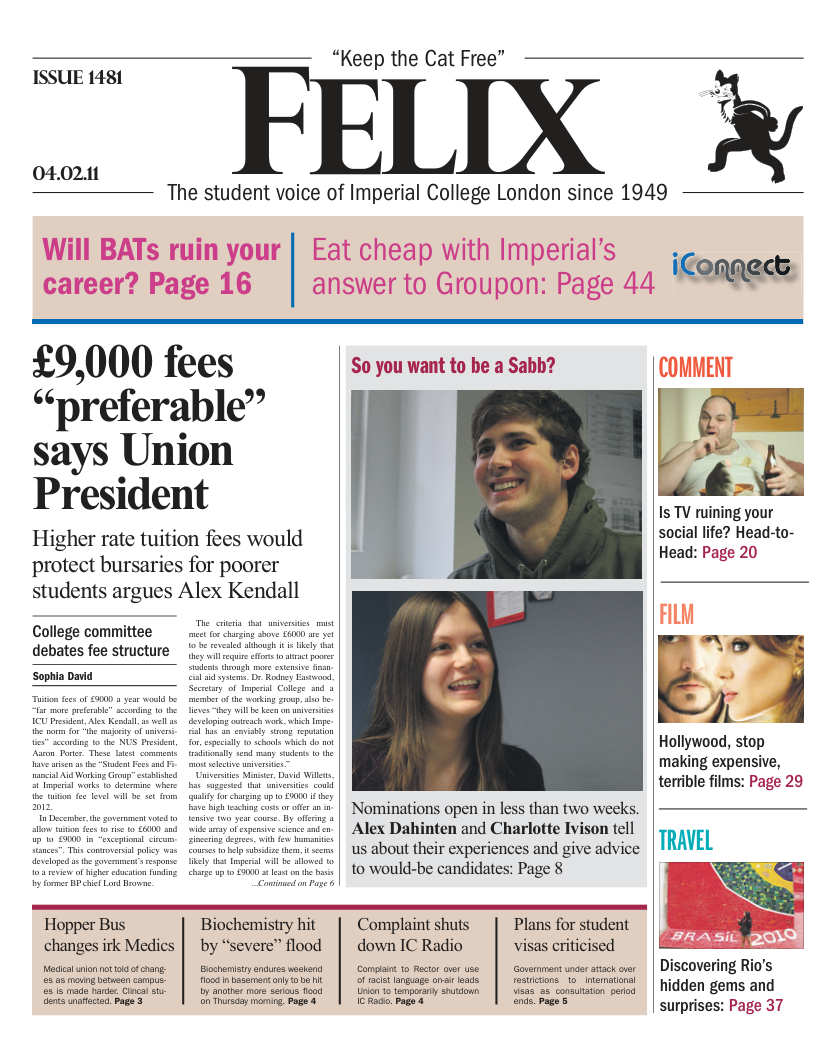Speak responsibly, even if no-one is listening
"Banter" that is appropriate in the pub is less appropriate elsewhere
This week our Media basement neighbours, IC Radio, found themselves on the wrong side of the Union's broadcasting guidelines. A guest on one of their music shows used the derogatory term "paki" when referring to one of his and the host's mutual friends. Regardless of whether offense was intended or not, at least one of the show's seven listeners was sufficiently affected to complain.
The danger in these situations arises when the public cannot reasonably identify the motivations behind a comment. That is why the environment and the context of such remarks are so important. "Banter" that would be perfectly acceptable with old friends in the local pub is much less acceptable in the workplace or indeed in a broadcast. The listener or reader's confidence must be earned; jokes can easily be misconstrued if your audience isn't expecting comedy.
Any regular reader of these pages will know that Felix itself is by no means an offense-free zone. Many people's sense of humour are aroused by vitriol and abuse, and given the right context there is nothing wrong with indulging them. The type of humour that you will find on at the back of the paper – the type of humour that Hangman revels in – occurs in a clearly quarantined area. It is a properly defined space, where the reader is under no illusions as to what to expect.
Anybody can write an article in Felix. Anybody can start a show on IC Radio. These things seem so obviously desirable, natural and easy that one can easily forget there is anyone on the other side. Those of us working in student media must never forget that we speak for the students and to all students of Imperial College. The magnitude of this responsibility is not diminished by the ease with which it can be acquired. IC Radio, recognising this responsibility, have complied fully with the Union's demands. Apologies have been made and steps have been taken to prevent a recurrence. Now that the dust has settled, questions should be raised as to whether the Union's decision to take them off the air was entirely appropriate.
Taking the entire station offline is akin to closing the wrong stable door after the horse has bolted. A similar incident last year at the University of Glasgow saw their radio station embarrassed after two presenters used 'numerous swear words and explicitly discussed sexual activities' on air. Their Union's response was to take down the offending show pending a further investigation. This is clearly a more measured step.
Alex Kendall has since admitted that the severity of the Union's reaction was intended to make a point. The point has been heard loud and clear in the Media basement – but it too has caused offence.






